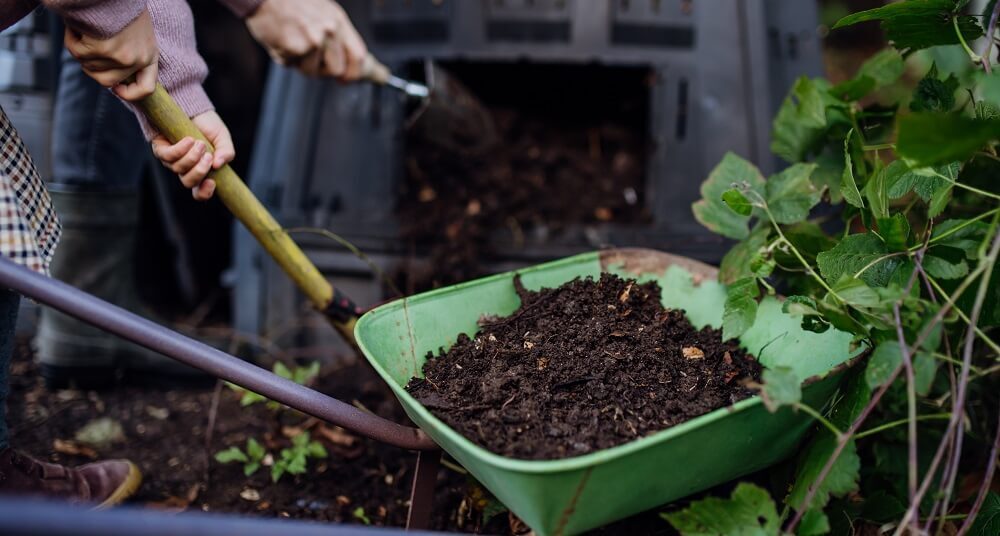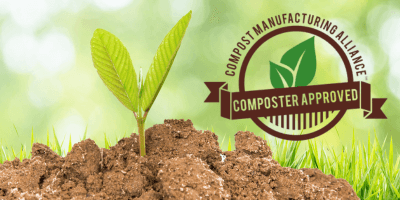In this article, we'll cover:
- What does CMA Compostable Certification mean?
- How does CMA Certification work?
- Why does CMA Certification matter?
- CMA vs. Other Compostability Certifications
- What products are CMA Certified Compostable?
What does CMA Compostable Certification mean?
CMA stands for Compost Manufacturing Alliance, a standard that confirms compostable products have been rigorously tested and proven to break down in real-world composting environments.
Unlike some certifications based only on lab conditions, CMA ensures that packaging and products perform as promised in active commercial facilities.
One unique aspect of CMA is that products are not required to display the CMA logo. Instead, the organization encourages clear coloring and labeling to help consumers and businesses easily identify compostable-friendly products.
By doing this, CMA builds trust among manufacturers, composters, and consumers. This helps create a stronger circular economy where organic materials give nutrients back to the soil.

How does CMA Certification work?
To earn CMA Certification, products must pass both laboratory and real-world field testing.
They are required to meet ASTM D6400 or D6868 standards, ensuring laboratory compostability, and also must undergo field disintegration tests in real commercial compost facilities to confirm they break down under real conditions and within a set timeframe.
Materials such as molded fiber, multilayer coated paper, and innovative new materials in food packaging are subject to this process. Additionally, CMA requires products to demonstrate less than 100 ppm of total fluorine to help eliminate PFAS, further ensuring environmental safety.
This process helps businesses feel confident that their packaging won’t harm compost streams. It also reassures consumers that certified items will compost as they should.
Why does CMA Certification matter?
Compostable packaging certifications play a vital role in helping consumers and businesses identify products that truly break down safely in composting environments.
Why do certifications matter?
- Certified compostable packaging is rigorously tested to ensure safety and complete biodegradation, protecting the environment and supporting regulatory compliance.
- These certifications help businesses demonstrate responsible sourcing and waste solutions, while empowering consumers to make informed, eco-friendly choices.
- Relying on these third-party verifications guards against misleading claims and ensures that compostable packaging performs as promised in actual compost facilities.
“When certified compostables break down properly, haulers and composters can focus on what matters: turning food scraps into nutrient-rich compost,” says Sammy Davies, Director of Sustainability and Brand at Eco Safe Zero Waste.
“This supports the circular bioeconomy, keeps food out of landfills, and grows the feedstock needed to build healthy soils.”
CMA Certified products give the assurance needed to grow composting programs, cut waste, and improve sustainable packaging systems.
"When certified compostables break down properly, haulers and composters can focus on what matters: turning food scraps into nutrient-rich compost."
—Sammy Davies, Director of Sustainability & Brand at Eco Safe Zero Waste
CMA vs. Other Compostability Certifications
CMA Certification benefits both businesses and the environment. It ensures that compostable packaging breaks down properly in commercial facilities, preventing contamination and protecting the quality of finished compost.
CMA Certification emphasizes field testing in active North American composting facilities, proving that products break down without disrupting compost operations.
Other popular certifications include: TÜV Austria and BPI Certification
- Many people widely recognize TÜV Austria in Europe and globally. It's OK Compost INDUSTRIAL and OK Compost HOME labels confirm compostability through controlled lab testing, not field trials.
- BPI Certification is the most common certification for compostable food packaging in North America. Based on ASTM lab standards, it verifies biodegradation, disintegration, and ecotoxicity but does not evaluate performance in live facilities the way CMA does.
Together, these certifications give businesses and consumers confidence that compostable products truly deliver on their promises.
What products are CMA Certified Compostable?
At Good Start Packaging, we proudly offer a diverse selection of products certified by CMA, BPI, and TÜV Austria (Home and Commercial).
Our CMA Certified collection features compostable cup lids, cutlery, cling wrap, and takeout containers that have been rigorously tested to ensure they break down effectively in real-world commercial composting facilities.
These products are ideal for restaurants, cafes, schools, caterers, and businesses of all sizes looking to reduce waste and actively support composting programs.
Conclusion
CMA Certification plays a vital role in the compostable products industry. By requiring proof that items break down in real composting environments, it ensures trust between manufacturers, composters, and consumers.
For businesses, choosing CMA Certified products is more than meeting sustainability goals. It shows a commitment to protecting compost quality, reducing landfill waste, and supporting a circular economy.



